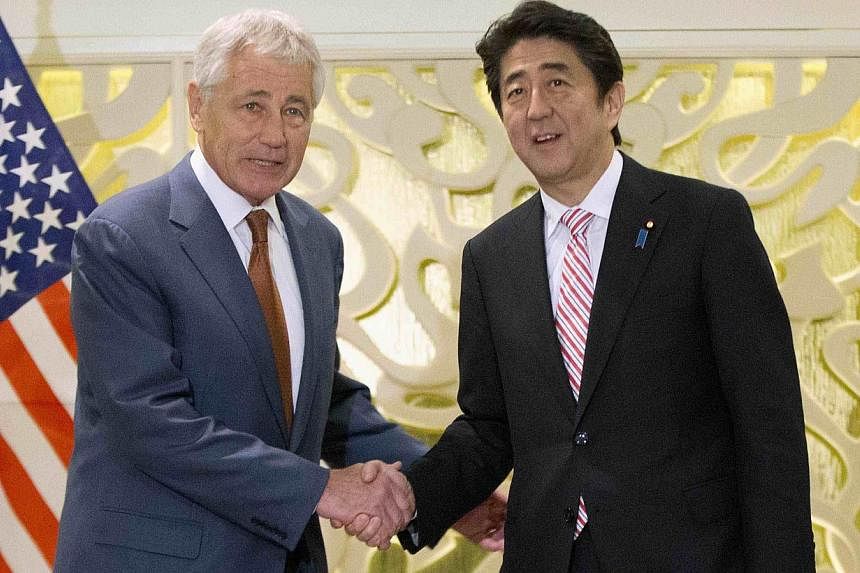SINGAPORE (AFP) - The United States on Saturday backed Prime Minister Shinzo Abe's plans to reshape the role of Japan's little-used military, in the strongest comments of support yet from Tokyo's major ally on the move.
Mr Abe told the annual Shangri-La Dialogue in Singapore on Friday that Japan would become a more active player in maintaining regional security, as he sets about altering the Self Defence Forces' rules of engagement.
Pentagon chief Hagel told the forum the United States "supports" Mr Abe's effort to "reorient its Collective Self Defense posture toward actively helping build a peaceful and resilient regional order".
To complement Japan's efforts, the United States and Japan "have begun revising our defense guidelines for the first time in nearly two decades," Mr Hagel told fellow defence chiefs, senior military officials, diplomats and security experts attending the annual conference.
"This will ensure that our alliance evolves to reflect the shifting security environment, and the growing capabilities of Japan's Self-Defense Forces," Mr Hagel said.
Nationalist leader Abe opened the forum by saying Tokyo, which has a territorial dispute with China, would take a more "proactive" stance in promoting peace in Asia.
Laying out a vision of Tokyo as a counterweight to the growing might of China, Mr Abe offered Japan's help to regional partners "to ensure security of the seas and skies".
"Japan intends to play an even greater and more proactive role than it has until now in making peace in Asia and the world something more certain," Mr Abe said in his keynote speech.
Japan invaded large swathes of Asia during World War II, including China and Southeast Asia, with its troops accused of committing large-scale atrocities against civilians.
Following Japan's surrender in 1945, its SDF has not fired a single shot in battle.
Its once-huge armed forces were emasculated, stripped by the foreign-imposed constitution of the right to wage war and restricted to a defensive role.
Mr Abe said in his speech that "close consultations" were underway in Japan to reshape the military's purely defensive posture.
Chinese state media responded by saying Abe had "played with international law to advance his thinly-veiled nationalist goals" in the address.
China is locked in a tense dispute with Japan over islands in the East Sea, which Tokyo calls Senkaku and Beijing refers to as Diaoyu.
Last year, China declared an air defence identification zone, including over the outcrops which are under Japan's administration.


